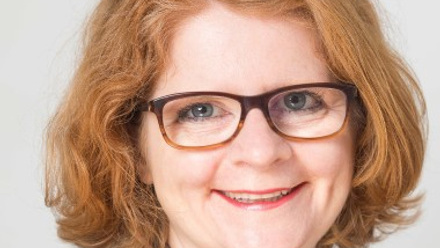Employees can ask pension scheme to pay charges when annual allowance is exceeded

When it comes to pension plans, tax and tax charges can arise on a variety of occasions. However, when the annual allowance (AA) is exceeded and AA charges apply, an individual can ask for the scheme to pay.
However, there are conditions!
Where an individual has exceeded the standard AA of £40,000 and is subject to an AA charge of £2,000 as a result of exceeding the standard AA or more, they can either pay the AA charge or provide notice to the scheme administrator requesting that the scheme pay the AA charge – this is the mandatory service known as ‘Scheme Pays’.
The member can also request that the scheme pay only part of the overall AA charge (the charge still needs to be £2,000 or more).
An individual must be an active member of a registered pension scheme for all or part of the tax year in which pension savings exceed the AA for Scheme Pays to apply.
Where a person is a member of more than one scheme, they cannot elect for one pension scheme to pay the entire liability or elect how they divide the liability. The maximum amount the member can request under Scheme Pays is based on the amount of the pension savings which have exceeded the AA threshold in that scheme only.
The scheme and the individual become jointly liable for the charge. The pension scheme will pay the AA charge (with the member being liable for any shortfall in payment). HMRC must still be informed of the member’s liability via their self- assessment tax form.
Schemes may decide to go further than required and may provide an additional Scheme Pays facility for tax liabilities below £2,000 – an optional service! The options remain as above; however, the member retains liability for the charge.
It’s not all free though as once the AA charge has been paid by the scheme, there is a reduction in the member’s benefits to reflect the payment by the scheme of the tax liability.
Where adjustments to benefits are made following payment of the AA charge on either the mandatory or the optional basis of the Scheme Pays regime, it is the member’s benefits that must be reduced subsequently, and not those of dependants. Guaranteed minimum pensions may not be reduced.
It is for the scheme, not the member, to decide how to reduce the member’s benefits in the scheme following a payment of an AA charge. Whilst in a defined contribution scheme the fund value will be reduced accordingly, for defined benefits schemes there is no fixed way to adjust benefits to reflect the payment of the AA charge. However, the adjustments should be ‘just and reasonable having regard to normal actuarial practice’.
A scheme may refuse to apply Scheme Pays in certain circumstances, for example defined benefits (DB) schemes, DB schemes in the Pension Protection Fund assessment period and other occasions where it would not be in the interests of other members of the scheme to pay the AA charge.
The Registered Pension Schemes (Modification of Scheme Rules) Regulations 2011 provide that where an individual opts to use Scheme Pays (on either the mandatory or the voluntary agreement basis), there is an overriding modification applied to the scheme rules. This allows the scheme to make the subsequent adjustment to the member’s benefits once the tax charge has been paid.
Tapering and Money Purchase Annual Allowance
Individuals who are subject to the tapered AA or MPAA are not prevented from using mandatory scheme pays and can still do so if the pension input amount for the registered pension scheme for the tax year exceeds the general unreduced AA (currently £40,000) and their AA charge liability on a default chargeable amount basis (i.e. by reference to the AA) would have exceeded £2,000.
Therefore, even if the tax liability is more than £2,000, an individual subject to a reduced AA cannot use mandatory Scheme Pays unless the tax charge would have been at least £2,000 by reference to the standard AA. However, the operational service could still apply.
There is a deadline for applying for Scheme Pays, and the pension scheme must receive the request in writing, to pay the charge no later than 31 July in the year following the tax year in which the AA charge was incurred.
However, the deadline can be brought forward if an individual intends to take all of their benefits or will reach age 75 in the year in which they wish to make use of Scheme Pays. The individual then gives the request to pay Scheme Pays from the fund before taking benefits.
Whether or not Scheme Pays is used or not might ultimately depend on the ‘maths’ of the best route for each individual – or even just the ability to pay the taxman!
Karena Woodall is consultant at Mattioli Woods.
This article was supplied by Mattioli Woods.







